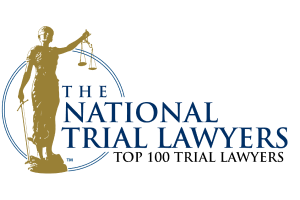Paralysis After an Auto Accident
Losing the use of a limb or not being able to walk is devastating. But for many victims of serious car crashes, paralysis is an unfortunate reality. Paralysis occurs when something goes wrong with the way messages are sent between the brain and the muscles. Paralysis can be caused by trauma—such as an auto accident—that results in an injury that damages the spinal cord or causes a severe head injury.
Types of Paralysis
Physical movement is controlled by communication between our sensory nerves (like those in our fingers and toes) and the central nervous system, which is comprised of the brain and spinal cord. Disruption of communication of nerve impulses anywhere along the pathway from the brain to the motor nerves and muscles can impair control of muscle movement. This disruption is often caused by damage to the spinal cord.
While the actual injury may be to the spinal cord, paralysis symptoms can occur anywhere in the body. The symptoms can be on both sides of the body (bilateral) or one side of the body (unilateral). Paralysis in the lower half of the body (below the midsection) is called paraplegia, while quadriplegia is paralysis occurring in both the arms and the legs. Paralysis can also affect the face.
Paralysis Symptoms
After a car accident in which a victim may have sustained a spinal cord injury, it is important to be able to recognize the symptoms of paralysis. Symptoms can include:
- Change in level of consciousness or alertness, such as passing out or unresponsiveness
- Change in mental status or sudden behavior change, such as confusion, delirium, lethargy, hallucinations, and delusions
- Changes in mood, personality, or behavior
- Difficulty with memory, thinking, talking, comprehension, reading or writing, or loss of muscle coordination
- Numbness, pain or tingling
- Respiratory or breathing problems, such as shortness of breath, difficulty breathing, labored breathing, wheezing, not breathing, or choking
Even after receiving treatment at a hospital, continue watching for signs of a more serious injury.
Treatment for Paralysis
Although there is no cure for paralysis, rehabilitation is often used to help a paralysis victim regain and retain some independence in their activities of daily living. Rehabilitation can be in the form of physical therapy, occupational therapy, as well as devices to aid in mobility and support such as wheelchairs, canes or braces. Treatment and rehabilitation for victims of paralysis is often long term and can have a significant impact on the victim and their family’s financial and emotional well being.
If you or a loved one experiences paralysis after an injury crash, it is important to follow the treatment plan provided by your health care provider. Following the treatment plan can reduce the risk of potential complications, such as:
- Adverse effects from the paralysis treatment
- Altered blood pressure
- Inability to perform daily tasks
- Muscle atrophy
- Permanent inability to move a body part
- Disability
- Negative quality of life
- Financial hardship
An experienced personal injury attorney can help make sure that you are compensated for future expenses associated with your injury, including the cost of medical treatment and equipment, lost wages, and pain and suffering.
Contact Us if You Have Sustained a Serious Injury in a Car Accident
If you or a loved one has been paralyzed or sustained another catastrophic injury as the result of an auto accident, please contact the legal team at Katz Personal Injury Lawyers for a free initial consultation. We can help you make the best decisions for you and your family after a tragic event. We help paralysis victims in Atlanta, Macon, Rome, Augusta, and across the State of Georgia. Contact (404) 460-0101.







